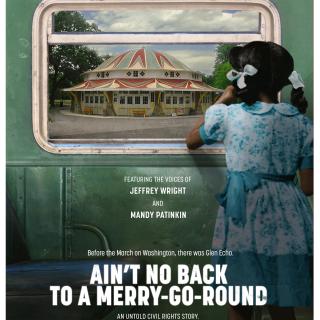Advertisement
Cancer took the life of film critic Roger Ebert in 2013, 14 years after it claimed former TV co-host Gene Siskel.
Unlike Siskel, however, Ebert did not sneak off into the great beyond. Even after thyroid cancer necessitated the removal of Ebert’s lower jaw—taking away his ability to eat, drink or speak—he remained a public figure with help from a prosthetic chin and a computerized voice.
Director Steve James (Hoop Dreams) recaps Ebert’s storied career in Life Itself, a documentary named after the critic’s 2011 memoir. Because James began his documentary only five months before Ebert’s death, it also serves as a record of his harrowing final days.
It may be due to the unexpectedly short time James had with Ebert that Life Itself comes off as a bit messy. Though it follows a generally chronological outline, some segments seem to be stuck here and there for no particular reason.
At two hours, the doc also seems longwinded, but film buffs won’t mind at all. They’ll be fascinated by all the minutiae about Ebert’s life and his place in the history of cinema. Their only regret may be that James never explains just how Ebert came to write the script to Russ Meyers’s cheesily exploitive Beyond the Valley of the Dolls (1970). The closest he comes is an interviewee’s suggestion that Ebert was drawn to Meyers’s films for one reason: “boobs.”
Cinephiles also will eat up comments by luminaries such as Time critic Richard Corliss and director Martin Scorsese. The former questions Ebert’s friendship with the Hollywood elite, saying it might have compromised his objectivity, while the latter says a well-timed tribute from Siskel and Ebert may well have saved his life.
For the average viewer, the documentary will be of most interest when it tackles the successful TV partnership between Ebert, critic for the Chicago Sun-Times, and Siskel, critic for the Chicago Tribune and, thus, his professional rival. Were they as antagonistic as they seemed on their movie-review shows?
Judging from the outtakes included in the film, they were even more so. The two apparently missed no opportunity to one-up each other, Ebert going so far as to use his 1975 Pulitzer Prize as a psychological battering ram. And yet, there’s also evidence that the bickering was simply part of a complicated friendship.
Two heroes emerge from James’s documentary. First, there’s Chaz Ebert, the strong woman who ended the critic’s half-century of bachelorhood and stood by her husband through his ever-worsening medical ordeals. And, most of all, there’s Roger Ebert, who approached death with the same gusto he brought to, well, life itself.
This is not always an easy film to watch. Ebert’s prosthetic-enhanced appearance takes some getting used to, and the camera records moments of treatment that clearly caused him pain. For movie buffs, though, this is essential viewing.
Rating: 3½ stars (out of 5)
Life Itself, rated R, will be presented from Friday through Tuesday (July 25-29) at the Gateway Film Center, 1550 N. High St., Columbus. Show times are 11:10 a.m. and 4:20 p.m. Friday-Sunday, and 11:30 a.m., 2:10 and 4:50 p.m. Tuesday. For more information, visit gatewayfilmcenter.com.



